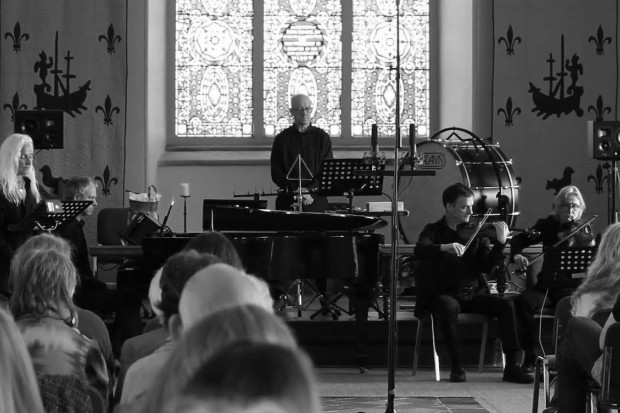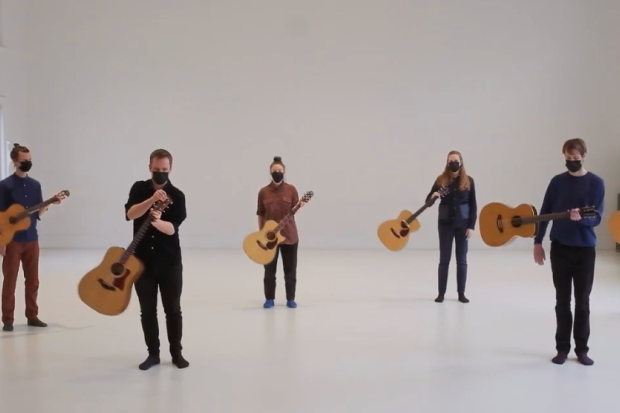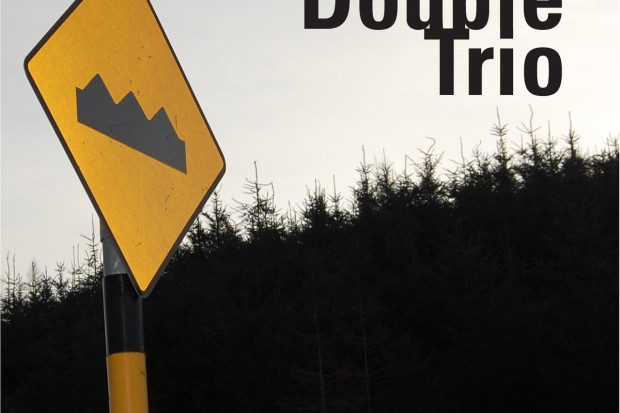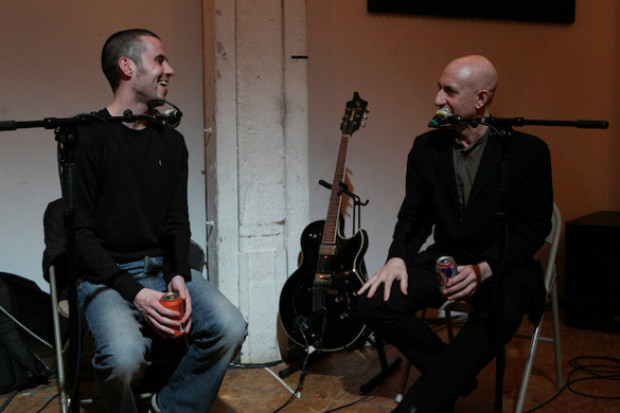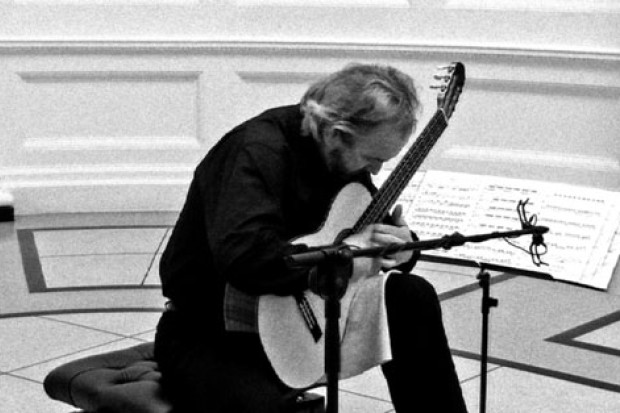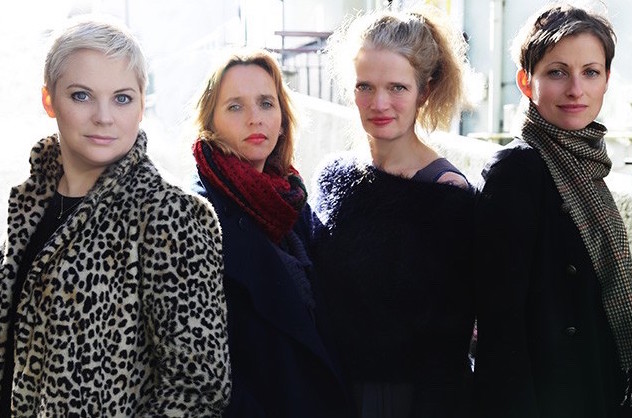
Helena Wood, Katherine Hunka, Mia Cooper and Ioana Petcu-Colan
Through the Lens
The violin has been a staple of Ian Wilson’s compositional output throughout his career. His latest album release, Echoes and Shadows, is dedicated entirely to the instrument, assembling a group of frequent collaborators. Helena Wood, Mia Cooper, Ioana Petcu-Colan and Katherine Hunka perform the composer’s 2016 quartet Quattro Stagioni, and Dušica Mladenović and Dušan Panajotović present a new two-violin arrangement of the 2004 work Eigenschatten. Mladenović alone performs the final work, 2020’s I Quattro Elementi.
Out of the three works, Eigenschatten has the most interesting concept. Named for a German philosophical idea – the shadow a body creates on itself by blocking light (imagine the shadow on your back when you face the sun) – this was originally conceived as a duo for solo violin with live recording. The violinist records a solo part, which is recorded and played back as accompaniment for the second half.
There is a real compositional challenge in creating a work where over ten minutes of material is repeated exactly. Wilson absolutely succeeds. This is the most abstract work on the album and, with a coherent through-line maintained over 25 minutes, also the strongest.
Mladenović and Panajotović share the solo material, and there’s a good sense in the first half of the work’s isolated, lonely materials drifting between the two performers, before the fuller-textured (though still sparse) second. It was recorded in the cellar of a Serbian winery, and the acoustic lends itself to wine-like descriptors: rich, full, dark, warm.
Just one string
Mladenović returns alone for I Quattro Elementi, a work in which Wilson sets himself a different challenge, as well as a technical challenge for the performer. Each movement is inspired by one of the four classical elements and each is performed on just one string.
The movements evoke less the sensation of the elements than the idea of them. The second, ‘Acqua’, isn’t water-like in the way that, say, Berio’s Wasserklavier is, but its rapid repetition and alteration of a single note suggests constant motion, ever-changing beneath the surface.
Wilson’s 2016 quartet for violins, Quattro Stagioni (Four Seasons), which was part of a Music Network tour by the quartet in 2017, clearly takes its title from Vivaldi, although in this case viewing them through the lens of Cy Twombly’s paintings of the same name. This is the second Wilson work to use the Twombly series as an inspiration, after 2005’s Winter Finding. There again, he doesn’t look directly at the subject, rather responding to poems by Lavinia Greenlaw which themselves were responses to the paintings.
Like I Quattro Elementi, the extent to which the works are evocative of the seasons is limited. Often they evoke the works for which they’re named, most clearly in ‘Primavera,’ the second movement, which takes the birdcall motifs from Vivaldi’s ‘Spring’ in an entirely new direction – not a more naturalistic one necessarily, but one fitting the melodic idiom of the work.
The sound engineering by David Wilson (on this work) and Lazar Arsović (on the others) is superb throughout the album. Here it really gives the performers their due; Wood, Cooper, Petcu-Colan and Hunka create a homogenous sound, but as melodic fragments are bounced between them, especially in the blustery finale Autunno, it is easy to follow aurally, emphasising the virtuosity and the skill of the performers.
But ultimately, unlike Eigenschatten, there’s a lack of a sense of larger-scale through-line in both these works. I often found myself admiring individual movements, but only able to think of them in isolation. There is, however, plenty to like: ‘Autunno’ and ‘Primavera’ in Quattro Stagioni; the whispering almost-nothingness of ‘Aria’; the amazing tone and timbre control in ‘Acqua’.
The idea of music written looking through a lens, of finding a way of looking, is a useful one for thinking about the works on this album and about much of Wilson’s work. Winter Finding looked at Twombly’s paintings through Greenlaw’s poems; the composer’s tenth string quartet, Across a clear blue sky, examined the 2001 New York terrorist attacks through Séamus Heaney’s poem, ‘Horace and the Thunder’. Here, Wilson looks through Twombly’s Four Seasons to the Vivaldi concertos. Eigenschatten explores music seen through its own shadow. And I Quattro Elementi looks at each of the classical elements through a single violin string (or vice versa).
Lenses focus light, and they scatter it. The action of looking, of seeking a unique way of seeing existing material and focusing on it tightly, runs throughout this album, and is at the heart of everywhere it works, and everywhere it doesn’t.
Echoes and Shadows is available to purchase from Bandcamp: https://digital.farpointrecordings.com/album/echoes-and-shadows
Click on the image below to listen.
Published on 10 November 2021
Brendan Finan is a teacher and writer. Visit www.brendanfinan.net.













